St. Don Bosco, Great teacher, guide, and friend of youth, Pray for us to nurture the hearts and minds of young people, And to lead them with love, wisdom, and faith. Help us to follow your example of devotion to God, And to serve others with kindness, patience, and understanding. Amen.
ST. JOHN BOSCO
ST. JOHN BOSCO
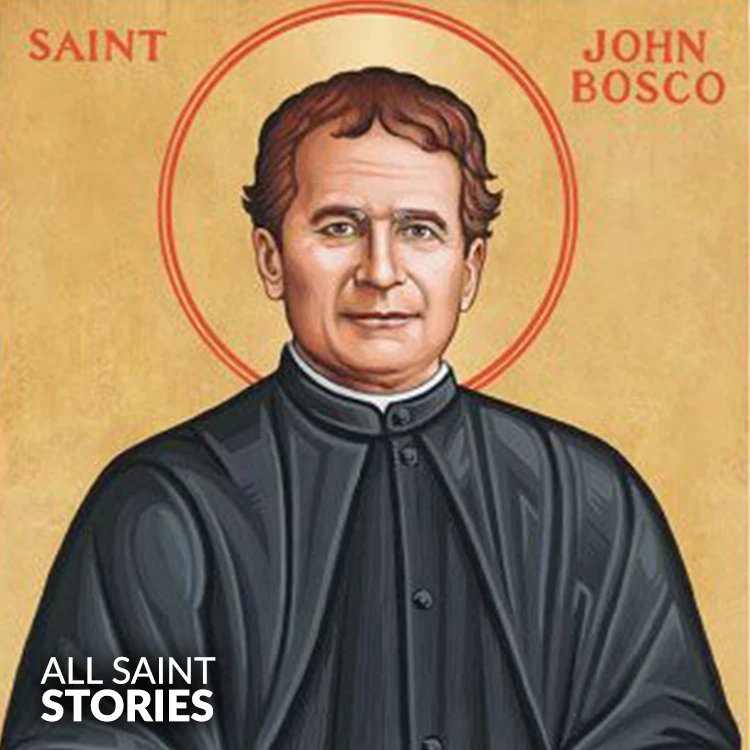
Saint John Bosco, known as Don Bosco, was an Italian priest devoted to the care and education of disadvantaged youth. He founded the Salesians and used kindness and faith to guide troubled boys, leaving a legacy that continues globally today.
John Bosco, affectionately called Don Bosco, was born on August 16, 1815, in Becchi, near Turin, Italy. He lost his father at a young age and was raised by his devout and hardworking mother, Margaret Occhiena. From early on, Don Bosco demonstrated a remarkable compassion for the poor and a strong sense of faith. A pivotal moment in his childhood was a vivid dream at the age of nine, in which he saw himself surrounded by a group of unruly boys. A man and a woman—whom he later believed to be Jesus and the Blessed Virgin Mary—appeared and instructed him to lead the boys with kindness and love. This vision shaped his entire life’s mission.
Ordained as a priest in 1841, Don Bosco dedicated his ministry to the welfare and education of young people, especially those marginalized by poverty and industrialization. Turin at the time was a city filled with abandoned and neglected children, many of whom turned to crime and vagrancy. He began gathering boys off the streets, providing them with food, shelter, religious instruction, and practical education. Don Bosco believed that to effectively teach and transform the lives of youth, one must combine discipline with love and understanding.
In 1859, he founded the Society of St. Francis de Sales—known today as the Salesians—whose purpose was to continue his mission of educating and supporting underprivileged boys. He developed a pedagogical method known as the "Preventive System," which emphasized reason, religion, and loving-kindness rather than punishment. He created a nurturing environment where boys could grow in faith and acquire skills for life. His charisma and revolutionary teaching model quickly attracted others to join his cause.
Not limiting his work to boys, Don Bosco collaborated with Saint Maria Domenica Mazzarello to co-found the Institute of the Daughters of Mary Help of Christians in 1872. This community of religious women focused on the education and care of young girls, further broadening the scope of his mission.
Don Bosco was tireless in his efforts. Despite enduring criticism, financial hardship, and political obstacles, he continued to build schools, technical workshops, and youth centers. He also authored numerous works on education, spirituality, and moral instruction. By the time of his death on January 31, 1888, the Salesian movement had spread far beyond Italy.
His legacy continues in more than 130 countries through the work of the Salesian Family, which includes the Salesians of Don Bosco, the Salesian Sisters, and lay collaborators known as Salesian Cooperators. They operate schools, technical institutes, youth centers, and shelters, always inspired by Don Bosco’s principles of gentle guidance, reason, and faith.
He was canonized a saint by Pope Pius XI on April 1, 1934. In 1988, Pope John Paul II honored him with the title “Father and Teacher of Youth,” reaffirming his timeless influence on education and spiritual formation for young people. His feast day is celebrated annually on January 31.
Video Not Found
The information on this website is compiled from various trusted sources. While we aim for accuracy, some details may be incomplete or contain discrepancies.
If you notice any errors or have additional information about this saint, please use the form on the left to share your suggestions. Your input helps us improve and maintain reliable content for everyone.
All submissions are reviewed carefully, and your personal details will remain confidential. Thank you for contributing to the accuracy and value of this resource.
Credits & Acknowledgments
- Anudina Visudhar (Malayalam) – Life of Saints for Everyday
by Msgr. Thomas Moothedan, M.A., D.D. - Saint Companions for Each Day
by A. J. M. Mausolfe & J. K. Mausolfe - US Catholic (Faith in Real Life) – Informational articles
- Wikipedia – General reference content and images
- Anastpaul.com – Saint images and reflections
- Pravachaka Sabdam (Malayalam) – Saint-related content and insights
We sincerely thank these authors and platforms for their valuable contributions. If we have unintentionally missed any attribution, please notify us, and we will make the correction promptly.
If you have any suggestion about ST. JOHN BOSCO
Your suggestion will help improve the information about this saint. Your details will not be disclosed anywhere.
© 2026 Copyright @ www.allsaintstories.com

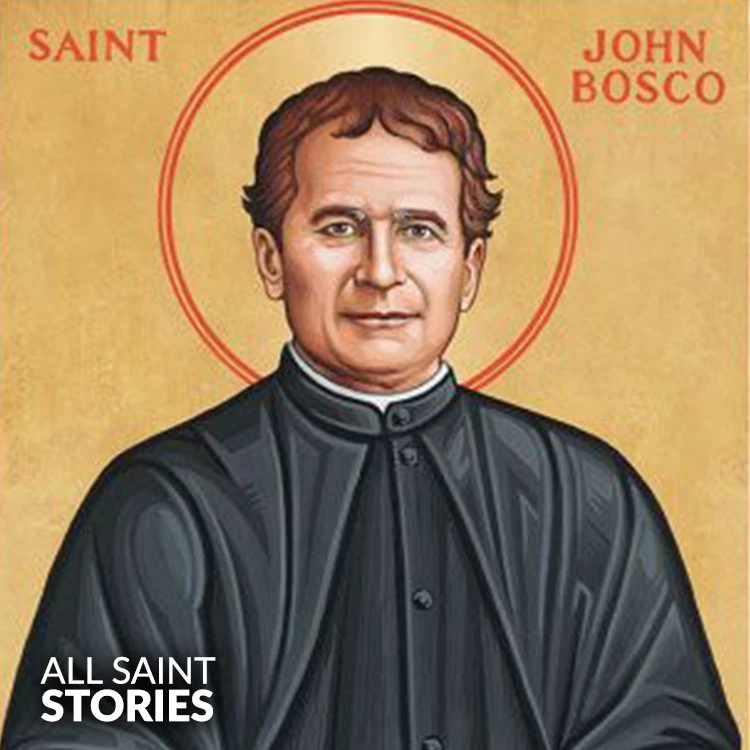
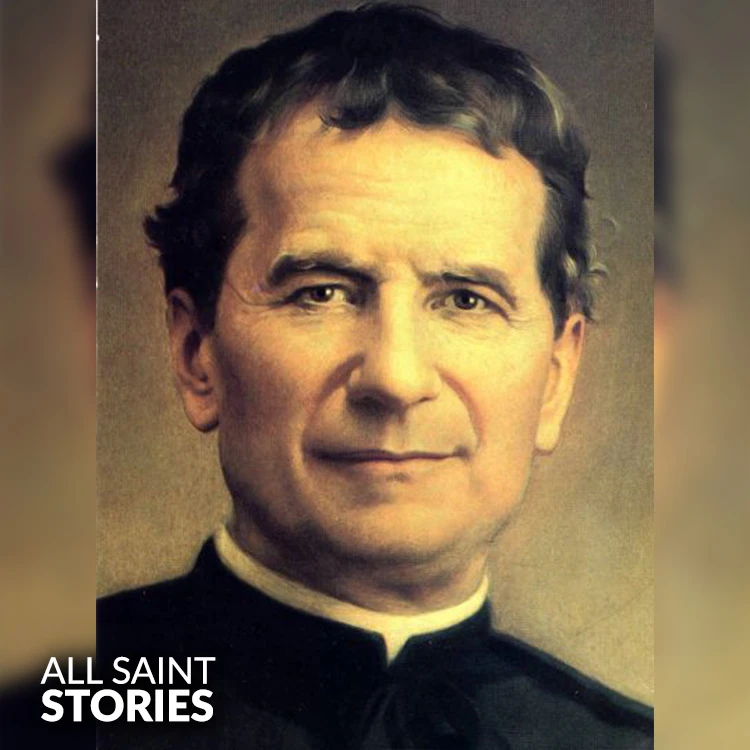
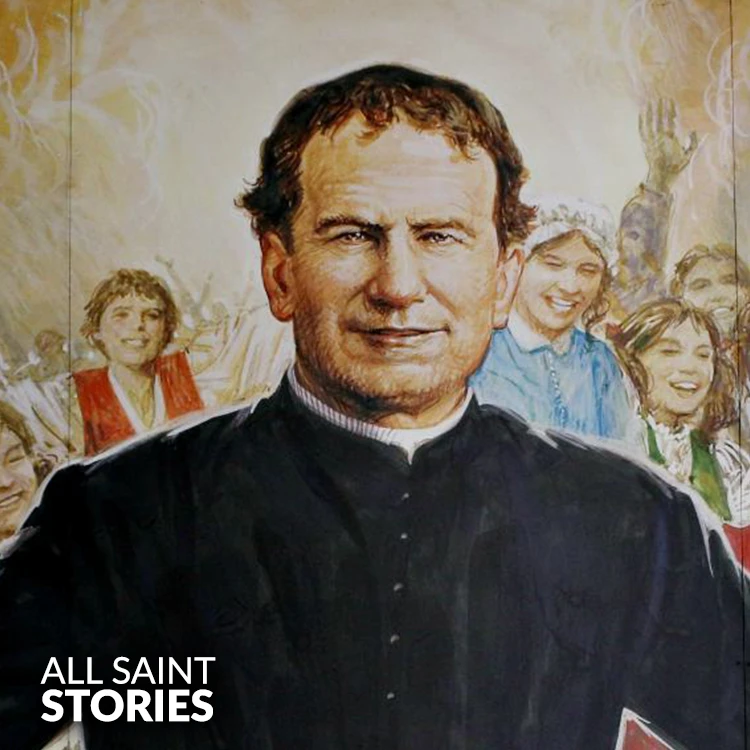
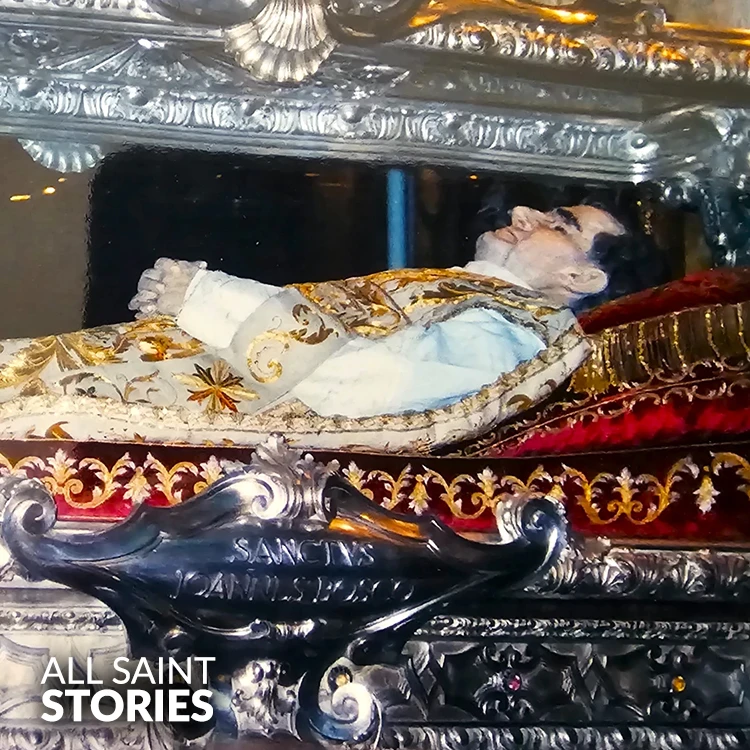
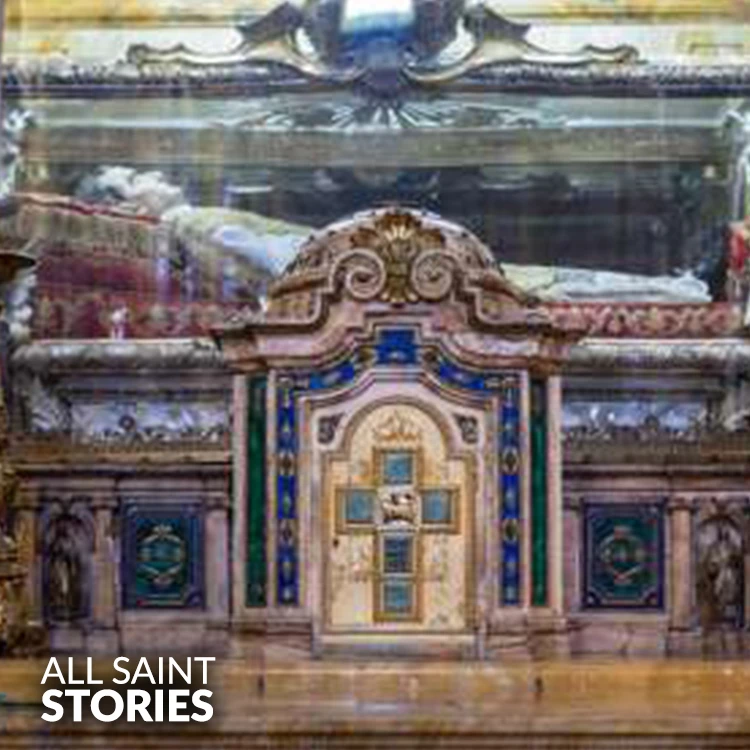

 English
English
 Italian
Italian
 French
French
 Spanish
Spanish
 Malayalam
Malayalam
 Russian
Russian
 Korean
Korean
 Sinhala
Sinhala
 Japanese
Japanese
 Arabic
Arabic
 Portuguese
Portuguese
 Bantu
Bantu
 Greek
Greek
 German
German
 Dutch
Dutch
 Filipino
Filipino